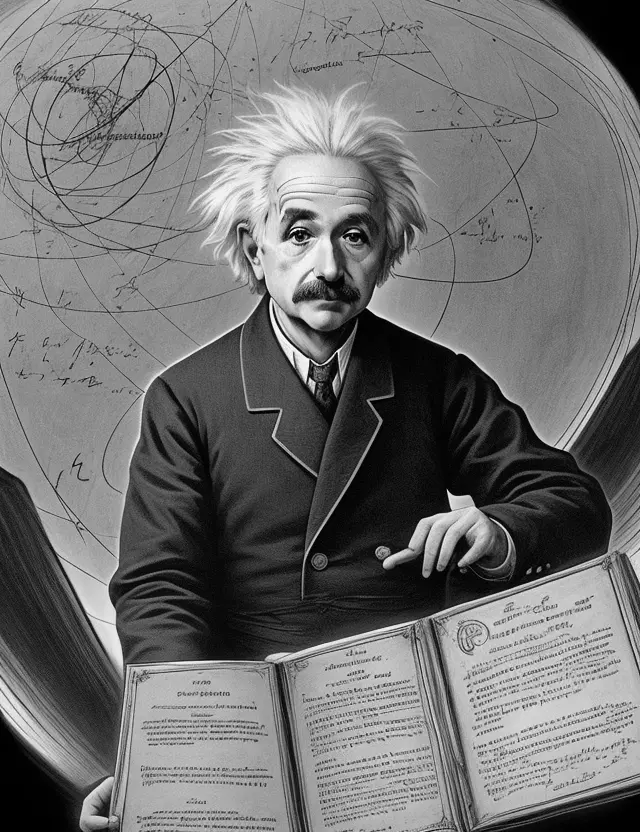Einstein's Revolution: Presentation of General Relativity Field Equations (1915)
Transforming the Understanding of Gravitation

Introduction
On November 25, 1915, Albert Einstein unveiled a groundbreaking contribution to the scientific world—the presentation of his field equations of general relativity to the Prussian Academy of Sciences. This transformative event marked a paradigm shift in the understanding of gravitation and left an indelible mark on the landscape of theoretical physics.
General Relativity Field Equations
Albert Einstein's field equations of general relativity represented a culmination of years of meticulous thought, mathematical exploration, and theoretical refinement. The equations described the fundamental interaction of matter and energy with the fabric of spacetime, providing a novel and comprehensive theory of gravitation.
Significance of the Presentation
The presentation at the Prussian Academy of Sciences was a momentous occasion that revolutionized the field of theoretical physics. Einstein's general relativity field equations replaced Newton's law of universal gravitation and offered a more nuanced and accurate description of how massive objects influence the curvature of spacetime.
Transformation of Gravitational Theory
Einstein's general relativity introduced the concept that massive objects, such as planets and stars, create curves in the fabric of spacetime. This revolutionary understanding of gravitation went beyond Newtonian physics, providing a more comprehensive framework that explained phenomena like the bending of light around massive objects.
Legacy in Scientific Thought
The presentation of general relativity field equations had a profound and lasting impact on scientific thought. It laid the foundation for numerous subsequent discoveries and confirmed through experimental tests, such as the bending of starlight during a solar eclipse, solidifying Einstein's place as one of the greatest physicists in history.
Enduring Influence
Albert Einstein's general relativity remains a cornerstone of modern physics, influencing diverse fields from cosmology to astrophysics. The presentation to the Prussian Academy of Sciences stands as a landmark moment that not only transformed our understanding of gravitation but also reshaped the trajectory of scientific inquiry in the 20th century.



